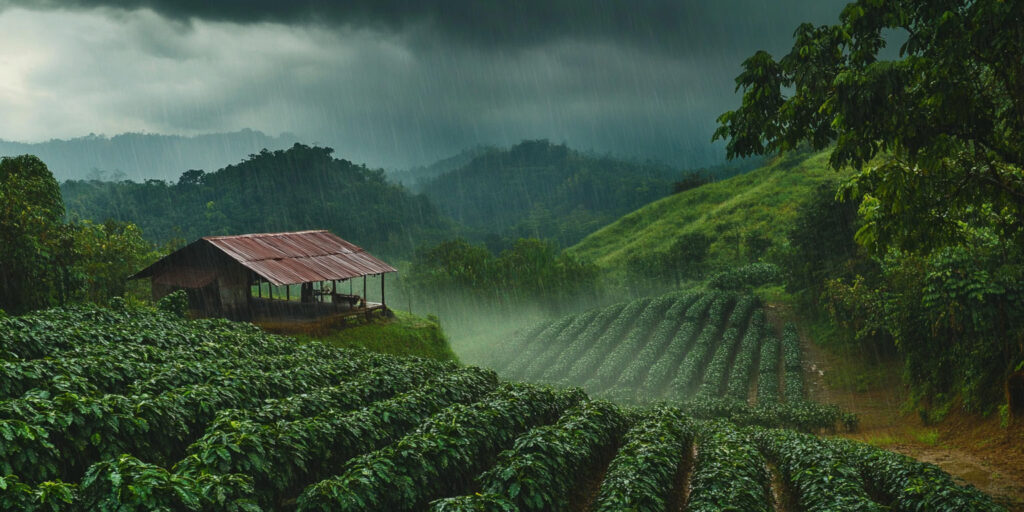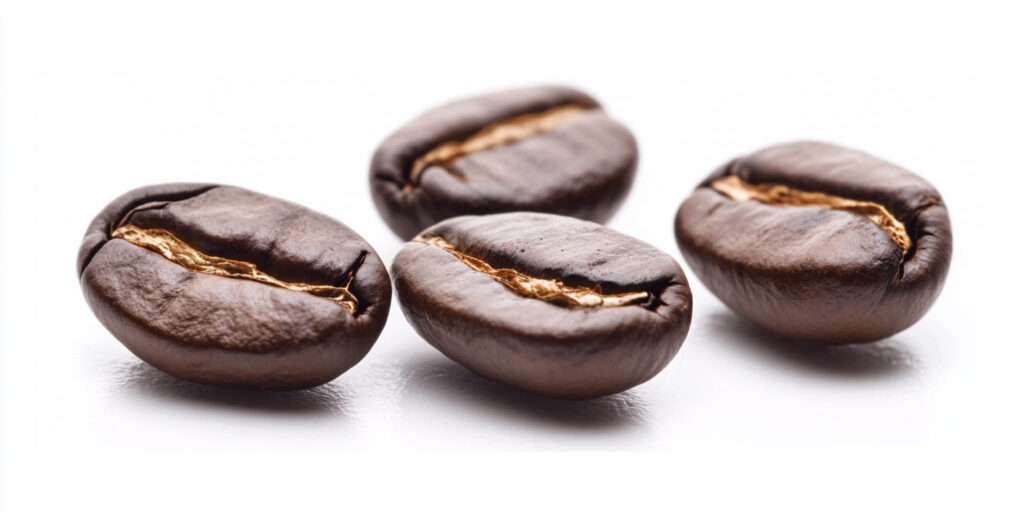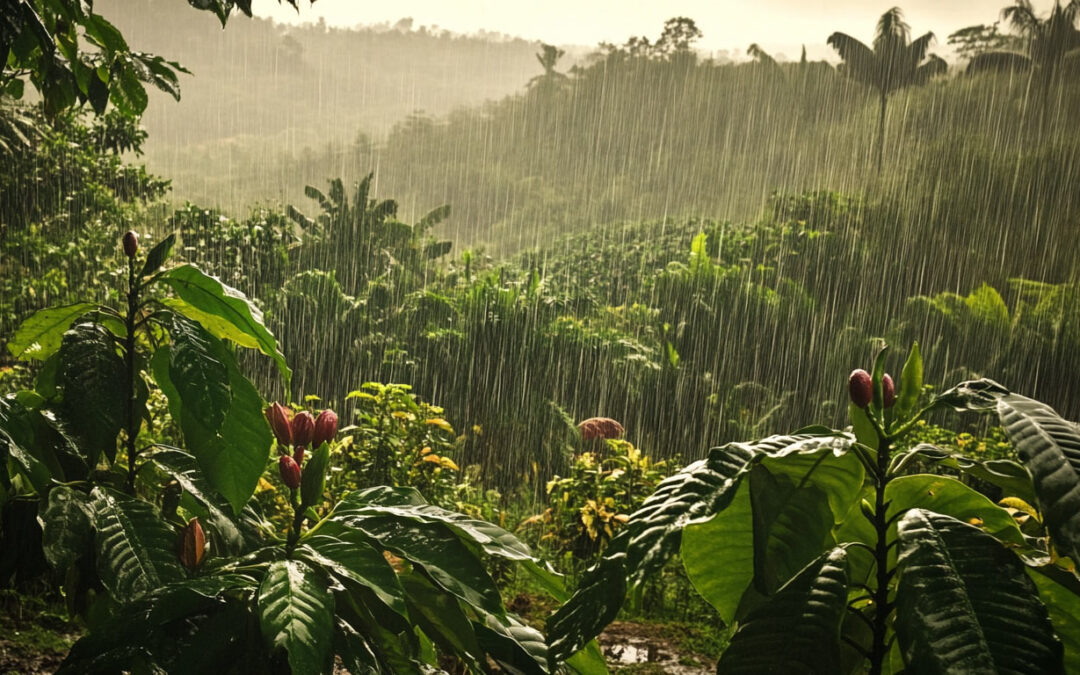In this post, we’ll explore how rain impacts coffee plants and beans, whether too much water is harmful, and if pre-moistening coffee beans before grinding enhances flavor.
How Rainfall Affects Coffee Plants and Beans
Rain plays a crucial role in coffee production, influencing everything from plant health to the taste of your morning cup. Coffee plants thrive in regions with consistent rainfall, but extreme wet or dry conditions can present challenges.
When There’s Too Much Rain
Heavy rainfall can cause major issues in coffee farms:
- Waterlogged Soil: When soil retains too much water, oxygen levels decrease, leading to root rot and weak plants.
- Bean Dilution: Excess moisture can reduce the density and flavor concentration of coffee beans, leading to a less robust taste.
- Pest and Disease Increase: Wet conditions create a perfect breeding ground for fungi, mold, and coffee plant diseases such as leaf rust.
- Delayed Harvesting: If it rains excessively during harvest season, drying the beans becomes difficult, potentially leading to moldy or spoiled coffee.
When There’s Too Little Rain
Drought conditions can be just as damaging as too much rain:
- Slow Plant Growth: Without adequate moisture, coffee plants struggle to grow and develop healthy leaves and cherries.
- Lower Yields: Lack of rainfall can lead to fewer coffee cherries, reducing the total production.
- Poor Bean Development: Dry conditions can result in smaller, lower-quality beans with a flat or overly bitter taste.
- Increased Plant Stress: Water scarcity forces coffee plants to go into survival mode, often affecting the overall quality and quantity of the crop.
Do Coffee Plants and Beans Become Waterlogged in Heavy Rain?
Yes, coffee plants can suffer from excessive moisture when rainfall is too high or drainage is poor. Overly wet soil suffocates the roots, leading to stress, disease, and even plant death. Waterlogged conditions also cause fermentation issues in coffee cherries, leading to off-flavors and poor-quality beans.
Coffee farmers combat this problem by planting on slopes for natural drainage, using raised beds, and incorporating proper irrigation management to prevent excess moisture from damaging crops.

Do Coffee Plants Like Wet Soil?
While coffee plants need moisture to thrive, they don’t do well in constantly wet soil. Coffee prefers well-draining, loamy soil that retains enough moisture for nourishment without becoming saturated.
Best Soil Conditions for Coffee Plants:
- Well-draining soil: Prevents water from pooling and suffocating roots.
- Moderate moisture levels: Keeps the plant hydrated without overwhelming the roots.
- Proper aeration: Allows oxygen to reach the roots for healthy growth.
Farmers often use mulching techniques and shade trees to regulate moisture levels, ensuring plants get just the right amount of water without over-saturation.
Should You Moisten Coffee Beans Before Grinding?
Pre-wetting coffee beans before grinding is a debated topic. While it’s not necessary, adding a small amount of moisture can help reduce static, leading to a cleaner, more even grind.
Pros of Moistening Coffee Beans Before Grinding:
✔ Reduces Static: Less coffee dust clings to the grinder, making cleanup easier.
✔ More Consistent Grind: Helps prevent uneven particle sizes.
✔ Better Extraction: Some believe slightly damp beans enhance extraction for a richer flavor.

Cons of Moistening Coffee Beans Before Grinding:
✖ Potential Clogging: If too much water is used, it can clog the grinder.
✖ Not Ideal for All Grinders: Some grinders may not handle moist beans well.
✖ Could Alter Flavor: If overdone, excess moisture may affect the coffee’s taste.
If you want to try it, a simple method is to lightly mist the beans or use a damp spoon before grinding. However, this step is entirely optional and depends on personal preference.
Final Thoughts: Striking the Perfect Balance
Water is essential in coffee cultivation, but balance is key. While rainfall nourishes coffee plants, too much or too little can impact growth, flavor, and bean quality. Farmers carefully manage water levels through strategic planting, irrigation, and soil maintenance to produce the best beans possible.
As for grinding, adding a bit of moisture might improve your brew, but it’s not a game-changer for most coffee lovers. The best approach is to experiment and find what works for your brewing method.
Next time you sip your coffee, consider how the perfect balance of rain, soil, and care has shaped the flavors in your cup!

